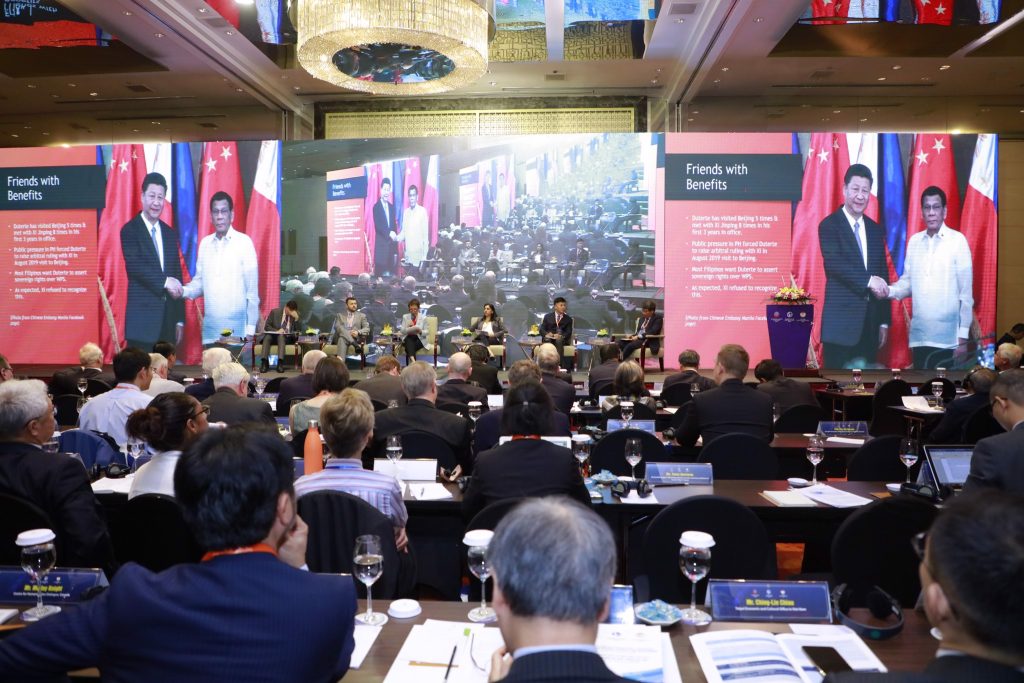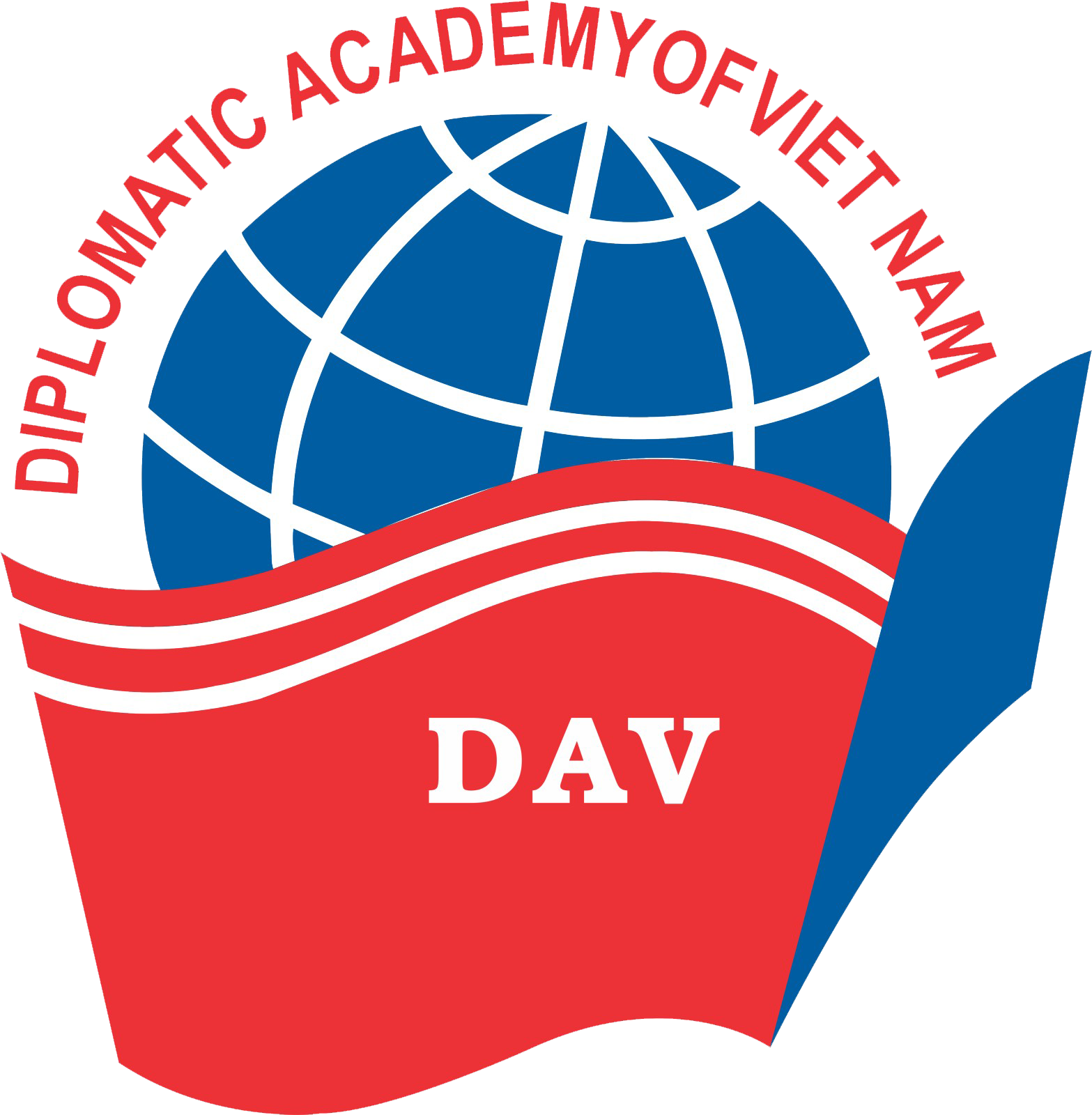
SCSC11: BRIEF OVERVIEW OF DISCUSSION IN THE 1ST DAY (NOV.06)
BRIEF OVERVIEW OF DISCUSSION IN THE 1ST DAY (Nov.06)
THE 11TH SOUTH CHINA SEA INTERNATIONAL CONFERENCE
COOPERATION FOR REGIONAL SECURITY AND DEVELOPMENT
Hanoi, November 06th, 2019
On November 6th, 2011, the International Conference Cooperation For Regional Security and Development on the South China Sea hosted by the Diplomatic Academy of Vietnam (DAV), the Foundation for East Sea Studies (FESS) and the Vietnam Lawyers’ Association (VLA) opens in Hanoi. This year’s conference attended by more than 289 participants, including 87 international scholars, 68 members of 36 diplomatic corps in Hanoi and journalists from more than 58 domesic and international media agency.
In the opening remarks, Professor Nguyen Vu Tung, President of the Diplomatic Academy of Vietnam notes that the South China Sea International Conference, after 10 sucessful years, has established its reputation as a prestigious and highly expected academic event on the South China Sea. The Conference has gathered leading experts in the region and the world to discuss maritime security, laws of the sea, maritime economic development, and protection of the marine environment, become a rendezvous for people with the same interests, especially interests in the South China Sea and motivated studies on the South China Sea both inside and outside the region. Prof. Nguyễn Vũ Tùng puts emphasis on 05 new features of the 11th South China Sea Conference, including: (i) encouraging an expanded view on the South China Sea Instead of viewing this Sea as the linkage between oceans, where both regional and extra-regional states meet in their interests and willingness to uphold international law; (ii) acknowledging an interlinkage between land and sea, and viewing the ocean as the continuation of land; (iii) tailoring discussion sessions to be more practical with greater participation from policy makers and practitioners; (iv) having a separate session on the UNCLOS 1982 on the occasion of the 25th anniversary of the entry into force of the United Nations Convention on the Law of the Sea 1982 and of Viet Nam’s accession to this Convention ; and (v) receiving the support of the largest number of domestic and international sponsors.
Speaking at the opening ceremony, Vietnamese Deputy Minister of Foreign Affairs Le Hoai Trung affirms the importance of the South China Sea, as the space for many important and busy shipping routes in the world, the bridge connecting the Indian Ocean and the Pacific Ocean as well as the Asian and Oceania continents, the components of many important regional initiatives; therefore, maintaining peace, stability, cooperation and development in South China Sea is of the interest and possibility of not only the regional countries but also international community. He notes that for the past years, cooperation in South China Sea has been promoted in many bilateral, minilateral and multilateral frameworks. However, regional countries have had to face to many challenges including activities that seriously violated the international law at sea, including Vietnam’s waters; the unilateral interpretation of the international law goes against the mutual standard and interest of the international community which weakens the confidence in the effect of the international legal system, eroding the rule based order and potentially becomes dangerous precedents threatening regional peace and security. Deputy Minister Nguyen Hoai Trung expects that the conference would continue putting the priority on the frank discussions to sum up the valuable experiences which can be applied to the South China Sea with the spirit of proactiveness, innovativeness, contributing to making the South China Sea a safe conjunction, a sea of peace, friendship and cooperation, serving the mutual interest of the regional and international community. He also welcomes the conference’s approach that looks at the South China Sea in a broader picture, in the linkage to important maritime zones and oceans like the polars, East China Sea, Indian Ocean and Paciifc Ocean.
The main focus of the first day of the Conference is the special session celebrating the 25th anniversary of the entry into force of the 1982 UNCLOS. Participants highlight the role of international law, especially UNCLOS 1982. UNCLOS is a comprehensive legal mechanism, balancing the mutual interest of the international community and of every single country, both coastal and land-lock ones. Therefore, it should be deployed in both national and international level. Some participants who are the ones witnessing the Convention negotiation process and the judges or former judges of the International Tribunal for the Law of the Sea (ITLOS) said that, after 25 years that the convention came into effect, the convention did overcome the time test, proving its role in stabling the maritime order, building a framework for the comprehensive legal system for marine governing and it deserves to be considered the “Constitution of the Sea”. Experts emphasize that the convention maintains its value in managing emerging maritime issues and affirm the role of judicial bodies in consulting, explaining, revising and developing the convention, contribute to finalizing the marine law and resolve the future dispute peacefully.
Discussing the role of multilateral mechanisms in promoting the rule based order environment and seeking for the solution to the South China Sea issues, participants agree that ASEAN plays an important part in the regional architecture in gengeral and the South China Sea dispute management and controlling in particular. ASEAN continues playing the central role in constructing the regional cooperation mechanism in the context of fierce competition between major power in order to construct the regioal order that favors all regional countries. In that sense, ASEAN adopted the ASEAN Outlook on the Indo-Pacific’. This is a timely initiative, reflecting ASEAN’s main principles, namely the mutual complementarity, inclusivity, rule based order in accordance with the international law, the role of ASEAN led mechanisms as the foundation for regional dialouges and cooperation. This is an active step and the common idea of the whole international community. Many participants emphasizes the important role of ASEAN in bolstering the maritime cooperation and building the code of conduct in accordance with the international law as well as building the rule based order in the South China Sea. Some experts state that ASEAN and ASEAN led forums are the “path for South China Sea to get out of the current complexity”. ASEAN actively pushed China to implement the DOC adequately and effectively as well as negotiate a successful, effective and comprehensive COC. The COC negotiation needs to be transparent and pursuant to rules of international law, especially the UNCLOS and it should not exclude the rights of the third parties. ASEAN support the rule based order to seek for the peaceful, long term and comprehensive solution to the South China Sea dispute in accordance with the international law and UNCLOS 1982.
Participants also affirm the role of the United Nation General, stating that the UN General is the proper froum for solving the world’s peace and security issues. the UN General consists of the largest number of the state members comparing other multilateral mechanisms which makes it possible to promote the international rule based order, especially UNCLOS 1982 and to provide the platform for the countries to name the South China Sea issue as well as bolster the peaceful solutions to dispute.
On November 7th, the convention will consist 6 round tables and 2 concluding sessions. The round tables are: (i) Reducing grey areas for better management; (ii) Preserving fish stock for next generations; (iii) Saving the ocean from Pollution; (iv) Contests in East China Sea; (v) The Indian and Pacific: The convergence of two oceans; and (vi) Polar Regions: New Frontiers.
